Heart Bypass Surgery Cost in Morocco normally between 100000 DH and 200000 DH, which is near about 27000 USD to 54000 USD. Coronary artery disease is caused by the hardening of the arteries that feed blood to the heart muscle (arteriosclerosis). EKG, stress test, echocardiography, and coronary angiography are all useful diagnostics in the diagnosis of Heart disease. CABG, or Heart bypass surgery, restores adequate blood flow to the heart muscle, allowing it to receive oxygen and nutrients. A vein from the leg or an inner chest wall artery can be used as a bypass graft for a CABG.
Cardiac Open Heart Surgery is performed in Morocco, which is one of the greatest medical and tourist destinations in the world. The reasonable costs, famous surgeons, sophisticated medical centres, and exceptional tourism attractions draw international patients from all over the world. Morocco's medical system is divided into two levels. There is both a universal public and a private healthcare system. In Morocco, quality assurance is a relatively recent idea aimed at ensuring health safety. Morocco is regarded as one of the greatest healthcare destinations in the world. Cardiac Surgeries in Morocco will be treated with respect, care, and professionalism, and patients will be directed through a treatment plan that is suited to their specific needs & budget. In Morocco, there are recognised clinics, cutting-edge technology, and excellent & highly qualified teams of experts who do Heart Bypass Surgery flawlessly. Wherefore, the Kingdom of Morocco has been a popular medical tourism destination due to its favourable location.
In Morocco a two-tiered medical system is present where you can avail servies in both the privatised healthcare or in any universal public healthcare. The Morocco healthcare system has four layers in their healthcare system. The first layer is primary healthcare which includes all the clinics, local hospitals and healthcare centers. The next level it includes hospitals for public & private health including some specialised clinics. Hospitals available in all major cities of Morocco comes under third section while university hospitals which have all advanced equipments are included in fourth section.
Clinique Internationale Marrakech has established itself as one of the best cardiac specialised hospitals in Morocco, among a long list of such facilities.
In Morocco, the cost of heart bypass surgery, also known as coronary artery bypass grafting (CABG), ranges from USD 27000 to USD 54000. The cost of heart bypass surgery is determined by a number of factors, including the type of bypass (single, double, or triple), the number of days a patient will be in the nation, doctors and nurses' fees, hospital expenses, and more. Following are the cost of CABG from other countries:
| Country | Cost |
|---|---|
| Czechia | USD 15000 |
| India | USD 4200 |
| Israel | USD 30000 |
| Malaysia | USD 18000 |
| Poland | USD 6900 |
| Singapore | USD 56000 |
| South Korea | USD 37000 |
| Spain | USD 27000 |
| Thailand | USD 23400 |
| Tunisia | USD 15000 |
| Turkey | USD 10000 |
| United Arab Emirates | USD 25010 |
Treatment cost

MediGence is offering immense facilities for your medical journey such as:
We provide packages at economical prices with a number of additional benefits which make it a better opportunity than spending actual hospital costs with singular benefits. Coronary artery bypass grafting (CABG) betters blood flow to the heart. It is a treatment option for a patient who has been suffering from Coronary Heart Disease. Coronary Heart Disease or Coronary Artery Disease in which plaque can add on within the coronary arteries reducing the oxygen-rich blood supply to the heart. In CABG a healthy vein or artery anywhere else from the body is connected to or grafted to the coronary artery which is blocked which bypasses the blocked part., We have outstanding options with all kinds of benefits for you to get the CABG surgery done in Sarvodaya Hospital and Research Centre, India.

We provide numerous services for your medical journey, including:
With us, you are sure to receive all the benefits at competitive prices which is a better choice than paying actual hospital costs. Coronary artery bypass grafting (CABG) betters blood flow to heart. It is a treatment option for a patient who has been suffering from Coronary Heart Disease. Coronary Heart Disease or Coronary Artery Disease in which plaque can add on within the coronary arteries reducing the oxygen rich blood supply to heart. In CABG a healthy vein or artery anywhere else from the body is connected to or grafted to the coronary artery which is blocked which bypasses the blocked part., We have outstanding options with all kinds of benefits for you to get the CABG surgery done in Fortis Hospital, Shalimar Bagh, India.
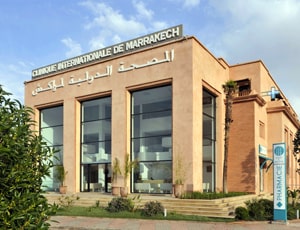
Apart from in-detail treatment procedures available, Clinique Internationale Marrakech located in Marrakesh, Morocco has a wide variety of facilities available for International Patients. Some of the facilities which are provided by them are Accommodation, Airport Transfer, Choice of Meals, SIM, TV inside room. Also listed below are some of the most prominent infrastructural details:

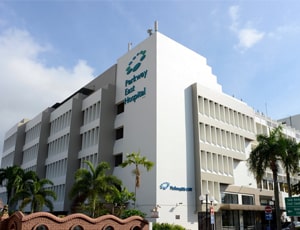
Parkway East Hospital located in Joo Chiat Pl, Singapore is accredited by JCI. Also listed below are some of the most prominent infrastructural details:
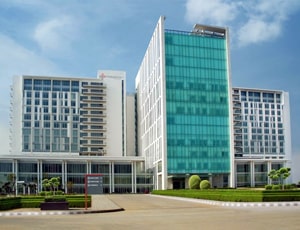
Types of Coronary Artery Bypass Grafting (CABG) in Medanta - The Medicity and its associated cost
| Treatment Option | Approximate Cost Range (USD) | Approximate Cost Range (INR) |
|---|---|---|
| CABG (Overall) | 4639 - 17356 | 380555 - 1442901 |
| On-Pump CABG | 4772 - 8478 | 386918 - 696773 |
| Off-Pump CABG | 5614 - 9564 | 464477 - 796524 |
| Minimally Invasive CABG | 8375 - 13605 | 706670 - 1093653 |
| Robot-Assisted CABG | 11119 - 17119 | 935709 - 1372632 |
| Redo CABG | 8510 - 13618 | 706777 - 1108570 |
DOCTORS IN 14 SPECIALITIES
FACILITIES & AMENITIES
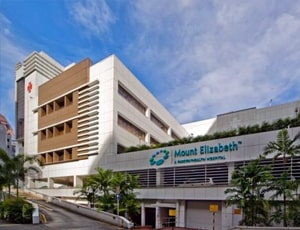
Mount Elizabeth Hospital located in Singapore, Singapore is accredited by JCI. Also listed below are some of the most prominent infrastructural details:
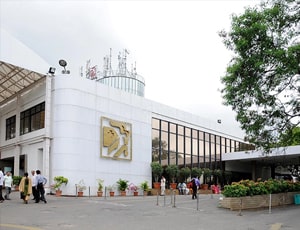
Types of Coronary Artery Bypass Grafting (CABG) in Apollo Hospitals and its associated cost
| Treatment Option | Approximate Cost Range (USD) | Approximate Cost Range (INR) |
|---|---|---|
| CABG (Overall) | 4818 - 17314 | 379211 - 1454836 |
| On-Pump CABG | 4835 - 8339 | 398744 - 695371 |
| Off-Pump CABG | 5733 - 9491 | 468789 - 774678 |
| Minimally Invasive CABG | 8319 - 13499 | 700756 - 1124393 |
| Robot-Assisted CABG | 11194 - 16807 | 904967 - 1354681 |
| Redo CABG | 8570 - 13302 | 701308 - 1111267 |
DOCTORS IN 14 SPECIALITIES
FACILITIES & AMENITIES
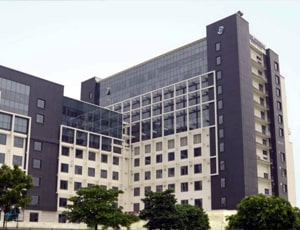
Types of Coronary Artery Bypass Grafting (CABG) in Venkateshwar Hospital and its associated cost
| Treatment Option | Approximate Cost Range (USD) | Approximate Cost Range (INR) |
|---|---|---|
| CABG (Overall) | 4271 - 15764 | 348541 - 1295271 |
| On-Pump CABG | 4324 - 7634 | 355034 - 623088 |
| Off-Pump CABG | 5062 - 8616 | 416591 - 704253 |
| Minimally Invasive CABG | 7646 - 12163 | 622641 - 995403 |
| Robot-Assisted CABG | 10141 - 15275 | 835523 - 1243073 |
| Redo CABG | 7648 - 12230 | 626336 - 1001298 |
DOCTORS IN 13 SPECIALITIES
FACILITIES & AMENITIES
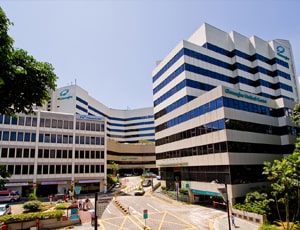
Gleneagles Hospital located in Napier Road, Singapore is accredited by JCI. Also listed below are some of the most prominent infrastructural details:
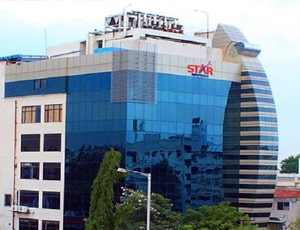
Types of Coronary Artery Bypass Grafting (CABG) in Star Hospitals and its associated cost
| Treatment Option | Approximate Cost Range (USD) | Approximate Cost Range (INR) |
|---|---|---|
| CABG (Overall) | 3917 - 14528 | 318549 - 1200800 |
| On-Pump CABG | 3966 - 7053 | 329088 - 573548 |
| Off-Pump CABG | 4666 - 7972 | 380825 - 655412 |
| Minimally Invasive CABG | 7023 - 11236 | 572525 - 923872 |
| Robot-Assisted CABG | 9266 - 14138 | 763845 - 1138321 |
| Redo CABG | 7037 - 11120 | 581585 - 933390 |
DOCTORS IN 12 SPECIALITIES
FACILITIES & AMENITIES
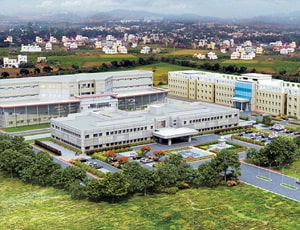
Types of Coronary Artery Bypass Grafting (CABG) in Global Health City and its associated cost
| Treatment Option | Approximate Cost Range (USD) | Approximate Cost Range (INR) |
|---|---|---|
| CABG (Overall) | 4706 - 17381 | 387205 - 1400732 |
| On-Pump CABG | 4703 - 8431 | 384313 - 693686 |
| Off-Pump CABG | 5729 - 9398 | 466759 - 784066 |
| Minimally Invasive CABG | 8424 - 13539 | 702097 - 1094977 |
| Robot-Assisted CABG | 11383 - 16782 | 903237 - 1407218 |
| Redo CABG | 8254 - 13542 | 699216 - 1096455 |
DOCTORS IN 14 SPECIALITIES
FACILITIES & AMENITIES
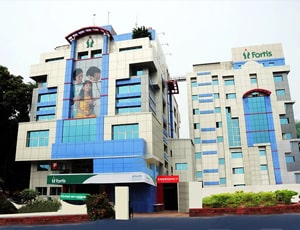
Types of Coronary Artery Bypass Grafting (CABG) in Fortis Malar Hospital and its associated cost
| Treatment Option | Approximate Cost Range (USD) | Approximate Cost Range (INR) |
|---|---|---|
| CABG (Overall) | 4247 - 15782 | 350101 - 1295476 |
| On-Pump CABG | 4323 - 7580 | 352323 - 625477 |
| Off-Pump CABG | 5068 - 8600 | 416059 - 706542 |
| Minimally Invasive CABG | 7624 - 12196 | 627122 - 1003375 |
| Robot-Assisted CABG | 10196 - 15292 | 835910 - 1249488 |
| Redo CABG | 7601 - 12127 | 623324 - 998601 |
DOCTORS IN 9 SPECIALITIES
FACILITIES & AMENITIES
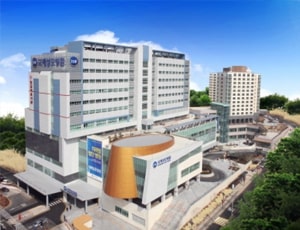
International St. Mary's Hospital located in Seoul, South Korea is accredited by JCI. Also listed below are some of the most prominent infrastructural details:
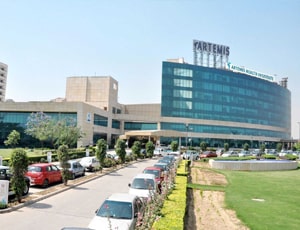
Types of Coronary Artery Bypass Grafting (CABG) in Artemis Health Institute and its associated cost
| Treatment Option | Approximate Cost Range (USD) | Approximate Cost Range (INR) |
|---|---|---|
| CABG (Overall) | 4790 - 17252 | 381574 - 1449205 |
| On-Pump CABG | 4756 - 8253 | 389368 - 684366 |
| Off-Pump CABG | 5570 - 9450 | 463186 - 792205 |
| Minimally Invasive CABG | 8357 - 13414 | 688416 - 1116326 |
| Robot-Assisted CABG | 11044 - 16955 | 919848 - 1378518 |
| Redo CABG | 8512 - 13552 | 680363 - 1103649 |
DOCTORS IN 15 SPECIALITIES
FACILITIES & AMENITIES

Types of Coronary Artery Bypass Grafting (CABG) in Sterling Wockhardt Hospital and its associated cost
| Treatment Option | Approximate Cost Range (USD) | Approximate Cost Range (INR) |
|---|---|---|
| CABG (Overall) | 4269 - 15701 | 348245 - 1291507 |
| On-Pump CABG | 4304 - 7596 | 353484 - 623386 |
| Off-Pump CABG | 5063 - 8653 | 414583 - 707089 |
| Minimally Invasive CABG | 7575 - 12152 | 622324 - 997866 |
| Robot-Assisted CABG | 10122 - 15209 | 835131 - 1243637 |
| Redo CABG | 7633 - 12151 | 621217 - 1001116 |
DOCTORS IN 14 SPECIALITIES
FACILITIES & AMENITIES
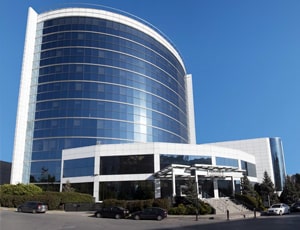
Types of Coronary Artery Bypass Grafting (CABG) in Medicana International Istanbul and its associated cost
| Treatment Option | Approximate Cost Range (USD) | Approximate Cost Range (TRY) |
|---|---|---|
| CABG (Overall) | 11471 - 28250 | 344491 - 850440 |
| On-Pump CABG | 11485 - 16916 | 348448 - 500996 |
| Off-Pump CABG | 13246 - 20064 | 410168 - 599178 |
| Minimally Invasive CABG | 16769 - 22425 | 506431 - 678040 |
| Robot-Assisted CABG | 20404 - 28681 | 611792 - 857505 |
| Redo CABG | 13559 - 20217 | 408806 - 614228 |
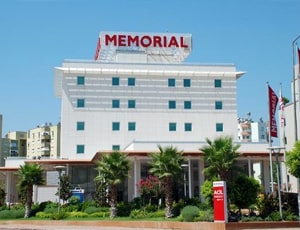
Types of Coronary Artery Bypass Grafting (CABG) in Memorial Antalya Hospital and its associated cost
| Treatment Option | Approximate Cost Range (USD) | Approximate Cost Range (TRY) |
|---|---|---|
| CABG (Overall) | 11376 - 28116 | 336839 - 847238 |
| On-Pump CABG | 11240 - 17143 | 341458 - 497990 |
| Off-Pump CABG | 13541 - 19832 | 400011 - 602694 |
| Minimally Invasive CABG | 16636 - 22881 | 510277 - 671950 |
| Robot-Assisted CABG | 20607 - 27771 | 608698 - 855692 |
| Redo CABG | 13290 - 20394 | 409648 - 608545 |
Coronary artery bypass grafting (CABG) is a type of an open heart surgery that intends to improve the flow of blood to the heart. It involves the placement of a coronary artery bypass graft, which is retrieved from a healthy artery in the body, and placed in the position of the blocked portion of the artery that supplies blood to the heart. CABG surgery is a complex, yet common procedure.
A waxy substance called plaque may deposit in good amount in the coronary arteries of the heart over a period of time. As time advances, the plaque starts hardening and eventually ruptures and breaks open. The plaque interferes with blood flow as arteries grow narrow at the affected region. A blood clot develops when the plaque ruptures. The artery may get blocked completely is the size of the clot is big enough to stop the flow of blood to the heart. This may eventually lead to serious events such as heart attack and also put the individual at the risk of death.
The person may experience chest pain and discomfort when the heart is deprived of rich oxygenated blood This pain is referred to as angina. Breathlessness and fatigue are some of the other problems associated with coronary heart disease.
Coronary artery bypass surgery aims at improving the overall blood circulation to the heart. A part of healthy artery or vein from another part of the body is taken and is grafted or connected to the blocked coronary artery for bypass. This artery or vein goes around the blocked portion of the coronary artery and establishes a new path for the blood to flow to the heart, thus reducing the chance of a heart attack. In a single surgery, surgeons can bypass multiple coronary arteries. Severe blockages can be treated with this procedure.
CABG is conducted when there are one or two blockages in the artery. High risk CABG is conducted when there are multiple blockages in the artery and the blood flow to the heart is severely restricted.
There are two approaches to conduct CABG – open heart surgery and laparoscopic bypass heart surgery. The latter is a type of minimally invasive heart bypass surgery, which involves the creation of smaller incisions. This results in minimum discomfort and complications and allows for faster recovery and healing.
Laparoscopic bypass heart surgery is mostly preferred when there is not much blockage in the coronary artery. Open heart surgery, on the other hand, is conducted in complicated cases. High-risk CABG is mostly conducted as an open heart surgical procedure.
Patients are transferred to the ICU right after the surgery and shifted to the patient ward a day later. Heart rhythm disturbances are discovered in 25 percent of the patients within a period of 3 or 4 days after the surgery. They are temporary atrial fibrillations associated with surgical trauma. Such patients respond well to standard medical therapies.
They can be weaned within a period of a month after the surgery. From one week to one day, the range of stay in the hospital may vary from one patient to the other. Young patients are usually discharged within two days. The recovery time can be very long and the range of physical activities must be kept to a minimum.
Ask your healthcare adviser for the best multiple options and choose the one that meets your expectations
The Coronary Artery Bypass Grafting (CABG) package cost in Morocco varies from one hospital to another and may offer different benefits. There are many hospital that cover the cost of pre-surgical investigations of the patient in the treatment package. The comprehensive Coronary Artery Bypass Grafting (CABG) package cost includes the cost of investigations, surgery, medicines and consumables. Stay outside the package duration, post-operative complications and diagnosis of a new condition may further increase the Coronary Artery Bypass Grafting (CABG) cost in Morocco.
There are many hospitals across the country that offer Coronary Artery Bypass Grafting (CABG) to international patients. For quick reference, the following are some of the leading hospitals for Coronary Artery Bypass Grafting (CABG) in Morocco:
The recovery of the patient many vary, depending on several factors. However, on an average, patient is supposed to stay for about 21 days in the country after discharge. This duration of stay is recommended to complete all the necessary follow-ups and control tests to ensure that the surgery was successful.
There are certain additional cost that the patient has to pay apart from the Coronary Artery Bypass Grafting (CABG) cost. The per day cost in this case may start from USD 50 per person.
Some of the popular cities in Morocco that offer Heart Bypass Surgery (CABG) are:
The patient is supposed to stay at the hospital for about 5 days after Coronary Artery Bypass Grafting (CABG) for monitoring and care. This phase is important to ensure that the patient is recovering well and is clinically stable. During this time, several tests are performed before the patient is deemed suitable for discharge.
There are many hospitals that offer Heart Bypass Surgery (CABG) in Morocco. These hospitals have proper infrastructure for the treatment of patients who require kidney transplant. These hospitals comply with all the rules and regulations as dictated by the regulatory bodies and medical association in Morocco